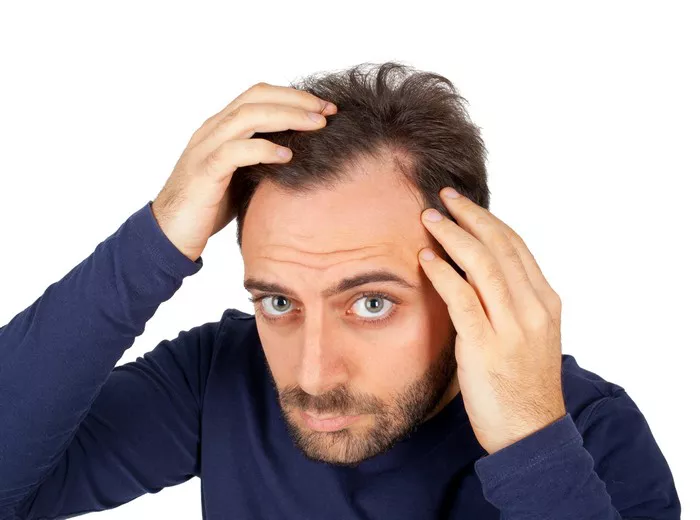In the quest for luscious locks and a healthy head of hair, individuals who have recently battled with typhoid might find themselves facing an unexpected challenge—hair fall. After recovering from this debilitating illness, it’s common to notice increased hair loss, which can be distressing. Fortunately, there are ways to combat post-typhoid hair fall and restore your hair to its former glory. In this article, we’ll delve into the topic of hair loss after typhoid, providing you with comprehensive strategies and tips for hair rejuvenation.
Understanding the Link Between Typhoid and Hair Fall
To effectively address hair loss post-typhoid, it’s crucial to first understand the relationship between the two. Typhoid is a severe bacterial infection that can wreak havoc on your immune system. During and after the illness, your body can experience physiological stress, leading to a phenomenon known as telogen effluvium, where a higher number of hair follicles enter the resting phase. This results in increased hair shedding, often observed a few months after recovery.
1. Telogen Effluvium: A Closer Look
Telogen effluvium is a temporary form of hair loss that can occur due to various factors, including severe illness, surgery, or emotional stress. It’s a self-limiting condition, but it’s essential to address it to promote hair regrowth.
2. The Role of Nutrient Deficiency
Nutrient deficiency is another factor that exacerbates hair loss post-typhoid. The illness can impair nutrient absorption in the body, leading to suboptimal conditions for hair growth.
Post-Typhoid Hair Fall Management Strategies
Now that we’ve established the root causes, let’s explore strategies to manage and prevent hair fall after typhoid.
1. Nutrient-Rich Diet for Hair Regrowth
To counteract nutrient deficiency, ensure your diet is rich in essential nutrients such as vitamins, minerals, and proteins. Include foods like leafy greens, eggs, and lean meats in your diet, as they provide the building blocks your hair needs to thrive.
2. Hydration and Scalp Care
Adequate hydration is key for overall health, including the health of your hair. Additionally, maintain a clean and well-hydrated scalp to create a favorable environment for hair growth. Using a gentle, sulfate-free shampoo and conditioner can help.
3. Stress Management and Rest
Combat the physiological stress caused by typhoid by practicing relaxation techniques like meditation and yoga. Adequate rest and sleep are also essential for your body to recover and rejuvenate.
4. Topical Hair Treatments
Consider incorporating topical treatments such as minoxidil, which is approved by the FDA to stimulate hair growth. Consult with a healthcare professional before using any such treatments.
Patience and Time: The Road to Recovery
It’s important to acknowledge that hair regrowth doesn’t happen overnight. After implementing the above strategies, be patient and give your body the time it needs to recover fully. Hair typically regenerates in cycles, and you should notice a reduction in hair fall and improved hair thickness as time goes on.
1. Monitor Progress
Keep a record of your hair’s progress. Take photos at regular intervals and track the changes in hair density and texture. This will help you objectively assess the effectiveness of your chosen strategies.
2. Professional Consultation
If you find that your hair loss persists or worsens, despite your best efforts, it’s advisable to consult with a dermatologist or trichologist. They can provide tailored solutions and evaluate whether an underlying medical condition is contributing to your hair fall.
Prevention is the Best Medicine
Preventing hair loss during typhoid recovery is always preferable to addressing it afterward. To minimize the risk of post-typhoid hair fall, focus on maintaining your overall health during the illness.
1. Early Nutritional Support
Seek the guidance of a healthcare professional to ensure you receive adequate nutrition during typhoid. Specialized diets and supplements may be recommended to prevent nutrient deficiency.
2. Gentle Hair Care
While you’re ill, be gentle with your hair. Avoid harsh chemical treatments, excessive heat styling, and tight hairstyles that can further damage your hair.
See Also: [Revealed!] The Top Hair Vitamins for African American Hair
In conclusion
Post-typhoid hair fall can be distressing, but it’s a manageable issue. By understanding the underlying causes and adopting a holistic approach to recovery, you can pave the way for healthier, more resilient hair. Remember that patience and persistence are your allies in the journey to stopping hair fall after typhoid, and seeking professional guidance when needed can make a significant difference in your quest for a vibrant mane.


